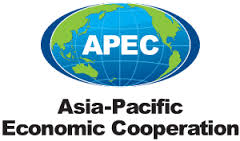Philippine News
Hosting of 2015 APEC Summit seen to lure investors to PHL
MANILA — The Philippines is keen on marketing itself anew as a prime investment destination when it hosts the 2015 APEC Summit, a high-profile event expected to be attended by government and business leaders from various parts of the world.
The event follows the World Economic Forum on East Asia, which the Philippines hosted last month for the first time.
Given the large membership of the Asia Pacific Economic Cooperation (APEC), which is composed of 21 economies from Asia and the Pacific, the Philippines will take advantage of the hosting opportunity to sell its strengths and potentially generate more foreign direct investments (FDIs).
This early, concerned government agencies and private-sector groups have started meetings for the formulation of a master plan for the country’s hosting.
Guillermo Luz, the private-sector co-chair of the National Competitiveness Council (NCC), said hosting of high-level business conferences meant not only providing a venue for the meetings but also working keenly on fulfilling the agenda of generating investments.
As such, the year-round series of APEC meetings to be held in the country in 2015 is expected to highlight myriad investment opportunies in the Philippines and how the Aquino Administration has made it easier for foreign investors to invest in the country.
“Our country is a nice place to hold international events. But apart from providing a venue for meetings and parties, we have a clear objective of investment promotion,” Luz said during the recent meeting of concerned government agencies and private-sector groups on the preparation for the 2015 APEC Summit.
Trade and Industry Secretary Gregory L. Domingo, who is the government co-chair of the NCC, said the Philippines’ hosting of the APEC Summit comes at an ideal time because of recent positive developments in the economy that can be used as selling points.
“A significant benefit of hosting high-profile events, such as the APEC Summit, is the promotional mileage. With the spotlight turned to the Philippines, the world is able to learn more about the strengths of the country,” Domingo said.
The Philippines last year secured investment grades from the three major international credit rating agencies—Fitch Ratings, Moody’s Investor Service, and Standard & Poor’s. They all cited the country’s improved fiscal situation, ample foreign-exchange reserves, stable banking system, and positive growth and inflation dynamics.
Last month, S&P lifted anew the country’s credit rating by a notch above the minimum investment grade.
“As we welcome business and government leaders from different parts of the globe to our shores, we want to tell them that the Philippines, which has become a rare bright spot amid uncertainties in the global economy, is an ideal place for investments,” Domingo said.
“This moment, when the country is said to be entering the demographic sweet spot, is the opportune time for any business to start marking its place in this vibrant economy,” he added.
Last year, net inflow of FDIs to the Philippines reached $ 3.86 billion, up by 20 percent from $ 3.215 billion the previous year.
The country, however, wants to corner even more FDIs to further boost job generation and achieve better inclusivity of its economic growth.
Both the government and the private sector expect a successful hosting of the 2015 APEC Summit to help the country attract more investments.
As such, Malacañang recently issued Administrative Order No. 36, which created the National Organizing Council (NOC) for the 2015 APEC meetings and delineated the role of concernedofficials and line agencies in the hosting.
Executive Secretary Paquito Ochoa Jr. chairs the council, and Foreign Affairs Secretary Albert del Rosario serves as his co-chair.
The Department of Trade and Industry will take a lead role in the business and investment promotion during the year-round event.
APEC, which has the objective of promoting sustainable growth and prosperity among member economies, include the following: Australia, Brunei Darussalam, Canada, Chile, China, Hong Kong, Indonesia, Japan, Republic of Korea, Malaysia, Mexico, New Zealand, Papua New Guinea, Peru, the Philippines, Russia, Singapore, Chinese Taipei, Thailand, the United States, and Vietnam.






















